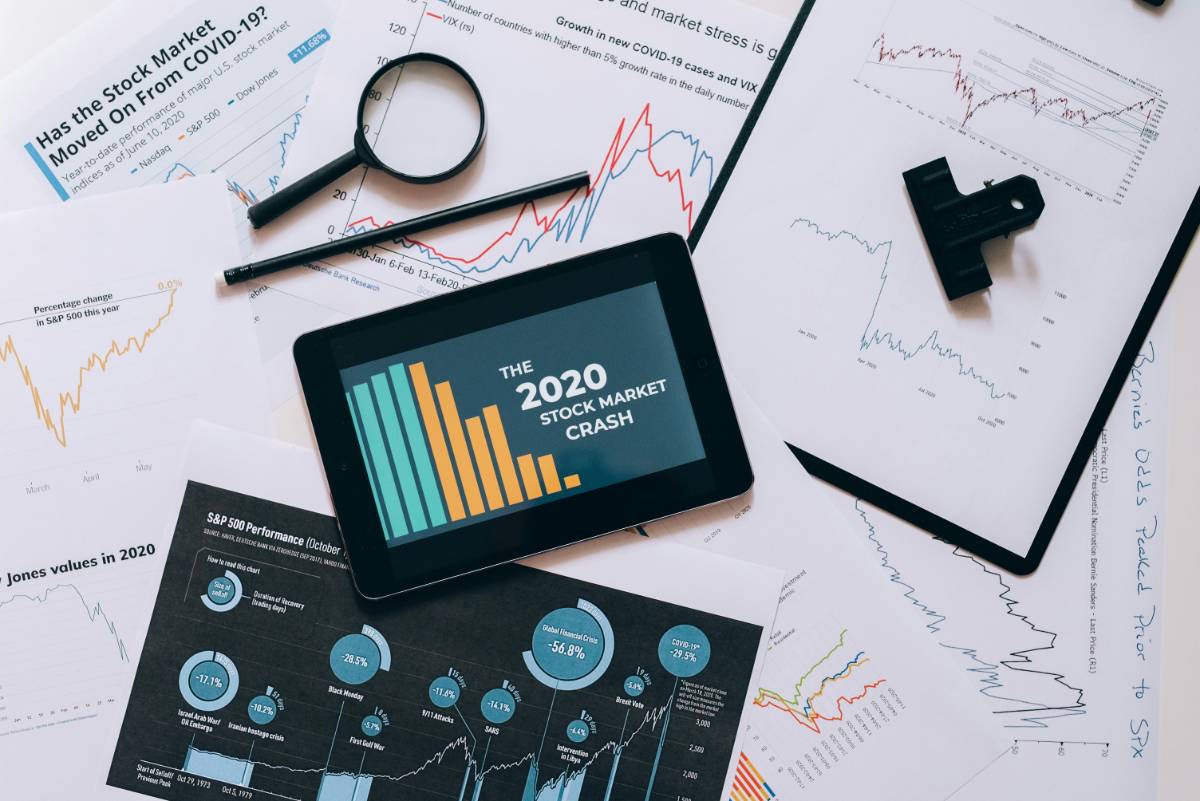
Budgeting for Beginners: How to Start and Stick to It
 By James Carter
By James CarterBudgeting is a fundamental tool for managing your finances and ensuring that you're living within your means. Whether you're saving for a major purchase, paying off debt, or simply looking to gain control over your spending, creating and sticking to a budget is the first step toward achieving your financial goals.

Why Budgeting is Important
A budget helps you allocate your income to cover essential expenses, save for the future, and avoid overspending. It provides a clear picture of your financial situation and helps you make informed decisions about where to spend and how much to save. Without a budget, it’s easy to lose track of where your money is going and end up in debt.
Step 1: Track Your Income and Expenses
The first step in budgeting is understanding how much money you have coming in and where it's going. Start by tracking your income, including your salary, side gigs, and any other sources of revenue. Then, track your expenses—both fixed (like rent or mortgage payments) and variable (like groceries, entertainment, and dining out).
There are various tools to help you track your expenses, such as budgeting apps, spreadsheets, or simply pen and paper. The key is to be consistent and honest about your spending habits.
Step 2: Categorize Your Spending
Once you've tracked your income and expenses, categorize them into different groups. Common categories include:

Housing: Rent or mortgage, utilities, insurance
Transportation: Car payments, gas, insurance, public transit
Food: Groceries, dining out
Debt: Credit card payments, loans
You might also like
1. Top Gainers and Losers on Wall Street This Month2. Market Volatility: Should Investors Be Concerned?3. The Basics of Passive Income: How to Make Money Work for You4. Meme Stocks: Are They Making a Comeback?Entertainment: Subscriptions, hobbies, outings
Savings: Emergency fund, retirement, investments

This helps you see where your money is going and identify areas where you can cut back if necessary.
Step 3: Set Realistic Financial Goals
A key part of budgeting is setting realistic financial goals. These goals can be short-term, like saving for a vacation, or long-term, like building an emergency fund or paying off student loans. Be specific about how much you want to save and by when, and factor those goals into your monthly budget.
For example, if you want to save $1,200 for an emergency fund in a year, that’s $100 per month. Include that goal in your budget to ensure that you're making progress toward it each month.

Step 4: Create a Spending Plan
With your income, expenses, and goals in mind, it's time to create your spending plan. Subtract your expenses from your income and allocate any remaining funds to savings or debt repayment. If your expenses exceed your income, look for areas to cut back or find ways to increase your income.
A popular budgeting method is the 50/30/20 rule:
50% for needs (housing, utilities, food)
30% for wants (entertainment, dining out)
20% for savings and debt repayment
Adjust these percentages based on your specific financial goals and circumstances.
Step 5: Monitor and Adjust Your Budget Regularly
A budget isn’t a one-time task—it requires ongoing attention and adjustments. Regularly review your budget to ensure you’re on track with your goals. If your income or expenses change, update your budget accordingly. Tracking your progress and making adjustments helps keep you motivated and ensures that you're always moving toward your financial goals.
Tips for Sticking to Your Budget
While creating a budget is essential, sticking to it can be challenging. Here are some tips to help you stay on track:
Automate your savings and bill payments to make sure you’re consistently saving and avoiding missed payments.
Use cash or a debit card for discretionary spending to prevent overspending on credit cards.
Avoid impulse buying by planning your purchases and waiting 24 hours before making non-essential purchases.
Find ways to make budgeting fun, like rewarding yourself when you meet your savings goals.
Conclusion
Budgeting is a powerful tool for taking control of your finances. By tracking your income and expenses, setting realistic goals, and sticking to your spending plan, you can manage your money effectively and work toward your financial aspirations. Whether you’re just starting or looking to refine your budgeting skills, taking small steps each month can lead to big financial improvements.
About the author
 By James Carter
By James CarterJames Carter is a seasoned finance writer with over 8 years of experience helping millennials and Gen Z take control of their money. With a background in economics and a passion for demystifying complex financial concepts, Ananya shares actionable tips on budgeting, investing, and building long-term wealth. Her mission is to make financial literacy accessible, relatable, and empowering — no jargon, just smart money moves.
More like this

Stock Buybacks: How They Influence Share Prices
Stock buybacks have become a common strategy for companies looking to boost share prices and reward investors. Understanding their impact can help investors make informed decisions.

Meme Stocks: Are They Making a Comeback?
Meme stocks took the financial world by storm in recent years, driven by online communities and retail investors. As market conditions shift, many wonder if these stocks are making a comeback.

Dividend Stocks vs. Growth Stocks: Where’s the Best Opportunity?
Investors often face a crucial decision when building their portfolios: Should they invest in dividend stocks for stability or growth stocks for higher returns? Understanding the differences can help in making the right choice based on financial goals and risk tolerance.

How Geopolitical Events Affect U.S. Stock Performance
Geopolitical events have a significant impact on the U.S. stock market, influencing investor sentiment, market volatility, and sector performance. Understanding these effects can help investors navigate uncertainty and make informed decisions.

AI and Automation: The Next Big Disruptors in the Stock Market
Artificial intelligence and automation are transforming industries, and the stock market is no exception. These technologies are reshaping investment strategies, trading mechanisms, and market dynamics at an unprecedented pace.

S&P 500 vs. Nasdaq: Where Should You Invest?
Investors often compare the S&P 500 and the Nasdaq when deciding where to allocate their funds. Understanding the differences between these indices can help you make a strategic investment choice based on your risk tolerance and financial goals.

Why Tech Stocks Are Leading the Market Again
Tech stocks are once again at the forefront of the market, driven by innovation, strong earnings, and investor optimism. As companies in the sector continue to expand their influence, understanding the reasons behind this surge can help investors make informed decisions.

The Impact of Federal Reserve Policies on the Stock Market
Federal Reserve policies play a crucial role in shaping the stock market. Interest rate decisions, quantitative easing, and regulatory measures directly impact investor sentiment and market performance. Understanding these effects can help traders and long-term investors navigate the evolving financial landscape.

Top Performing Stocks on Wall Street This Quarter
The latest quarter on Wall Street has seen significant movements, with some stocks outperforming expectations while others struggled to keep up. Understanding these trends can help investors make informed decisions moving forward.

U.S. Stock Market Outlook: What to Expect in 2025
As we move into 2025, investors are looking for insights into the U.S. stock market's potential trajectory. Market trends, economic policies, and global events will all play crucial roles in shaping investment opportunities.

Market Volatility: Should Investors Be Concerned?
Market volatility is a common concern for investors, especially in uncertain economic conditions. While fluctuations in stock prices can be unsettling, understanding the factors behind market swings can help investors navigate uncertain times with confidence.

Tech Stocks to Watch: Are We in Another Boom?
The technology sector has been a driving force in the stock market, and recent trends suggest another potential boom. With advancements in artificial intelligence, cloud computing, and semiconductor innovation, investors are eyeing key tech stocks for future growth.

How Federal Reserve Decisions Are Impacting U.S. Stocks
The Federal Reserve plays a crucial role in shaping the U.S. stock market. Interest rate adjustments, monetary policy shifts, and economic outlooks set by the Fed significantly influence market trends and investor sentiment.

Top Gainers and Losers on Wall Street This Month
The stock market is constantly shifting, with certain stocks outperforming while others struggle. This month, Wall Street has seen significant movements in both directions. Here’s a look at the top gainers and losers.

Latest Trends Shaping the U.S. Stock Market in 2025
The U.S. stock market is evolving rapidly, with new trends shaping investor strategies and market movements. Understanding these trends can help investors make informed decisions in 2025.

Emergency Funds: Why They’re Essential and How to Build One
An emergency fund is a crucial aspect of financial planning, providing a safety net for unexpected situations such as medical emergencies, car repairs, or sudden job loss. Having a well-established emergency fund can reduce stress and prevent you from going into debt when life’s unexpected events occur. In this article, we’ll explore why emergency funds are essential and how you can start building one today.





